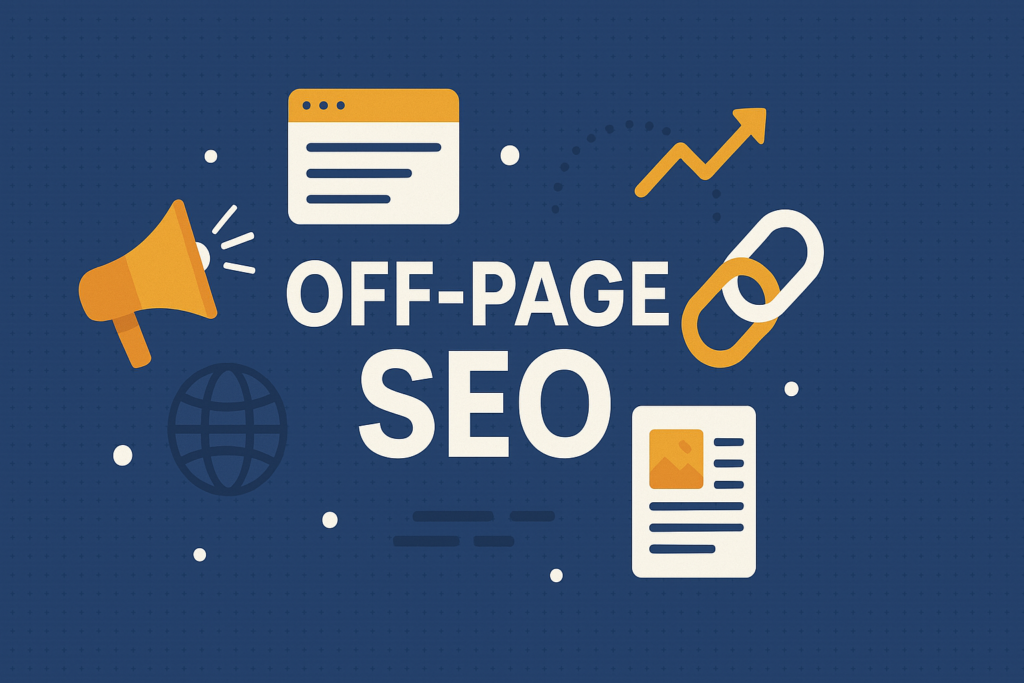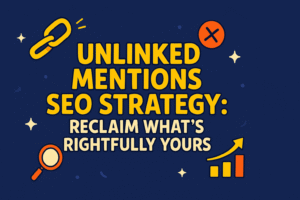
There is a lot of debate regarding On page SEO vs Off page SEO. Which one is better for your business? What’s the difference, and which should you focus on?
As an SEO professional, it’s essential to understand the differences between On-Page and Off-Page SEO. You might have tackled On-Page SEO if you’ve optimized your website’s meta tags, titles, and content for specific keywords. But hold on – there’s more to the equation. Off-Page SEO involves building backlinks and promoting your website through external sources. Still, this discussion continues.
In this blog post, we will break down On Page vs. Off Page SEO, the critical factors of On-Page SEO, off-page techniques, and FAQs to help guide your decision.
So, let’s get started by defining on-page SEO
What Is On-Page SEO?

On-Page SEO refers to the optimization tactics that take place directly on your website. This includes optimizing titles and meta descriptions, using keywords in your content, optimizing your site’s loading speed, and creating a user-friendly interface. On-Page SEO is something you have control over, as it is all within your website.
Now let’s dive into the critical factors of On-page SEO. Here are 10 On-Page SEO factors to consider:
On Page SEO Factors:
- Title Tags: Include your target keyword in the title and keep it under 60 characters.
- Meta Descriptions: Similar to title tags, include your target keyword and keep it under 160 characters.
- Header Tags: Use header tags, such as H1, H2, and H3, appropriately throughout your website content.
- Keyword Optimization: Use your target keyword throughout your website content, but make sure to use it in a natural and non-spammy way.
- Image optimization: Include alt text with your target keyword for all images on the page.
- URL structure: Keep URLs short and include your target keywords when possible.
- Internal linking: Link to other relevant pages within your website to improve the user experience and help search engines crawl through your site more easily.
- Content quality: Make sure all content is unique, informative, and valuable to the reader.
- Mobile optimization: Ensure that your website is mobile-friendly so users have a positive experience no matter their device.
- Site loading speed: Improve your website to ensure users have a positive experience and search engines can crawl through your site efficiently.
Now that you know about On-Page SEO, let’s talk about Off-Page SEO.
What Is Off Page SEO?

Off-Page SEO refers to tactics outside your website but can still impact your search engine rankings. This includes building backlinks from other websites, getting mentioned or shared on social media, and increasing brand awareness.
Why Is Off-Page SEO Important?
- Boosts your website’s domain trust and authority.
- Helps you rank higher in Google.
- Drives more organic traffic.
- Build your online reputation.
Off-Page SEO Techniques To Consider
Link Building
These are the techniques that most SEO professionals focus on for Off-Page SEO. Building quality, relevant backlinks from other websites can help improve your search engine rankings and increase authority.
There are several link-building techniques. But, Below are the top six techniques that never failed to build high-quality backlinks:
- Broken link building
- Guest blogging
- Resource page link building
- Skyscraper technique
- Infographic submission
- Blog comments
Social Media Marketing
As social media is booming, it’s essential to have a presence on various platforms. Getting shares and mentions on social media can help increase brand awareness and drive traffic to your website, which can ultimately improve your search rankings. Links from these social media profiles can also be considered backlinks.
Brand Mentions
Creating something valuable that no other website has can help you Get mentioned on other websites, news articles, and industry publications, can help increase your brand awareness, and potentially lead to backlinks. There’s a bit of a fine line between creating valuable content and actively reaching out to others in your industry for mentions, so make sure not to cross it and come off as spammy.
Online Reviews
Positive reviews on websites such as Yelp and Google can impact your search rankings and improve credibility and trust with potential customers. Encourage happy customers to leave reviews and respond to any negative reviews politely and helpfully.
Online Directories
Getting listed in online business directories can help improve local SEO and increase the chances of showing up in search results, especially for location-based searches. Make sure all information is accurate and up-to-date across all directories.
Which Has More Weightage: On Page vs Off Page SEO?
There is no correct answer to this question, as both On-Page and Off-Page SEO are important. Both On-Page and Off-Page SEO work together to improve search engine rankings. On-Page SEO helps search engines understand what your website and individual pages are about, while off-page SEO signals the authority and credibility of your website.
It Cannot be said that On-Page SEO is more important than Off-Page SEO or vice-versa. On-Page and Off-Page SEO are equally crucial for a successful overall SEO strategy. Focusing on both On-Page and Off-Page SEO tactics is essential to see the best results.
Google’s View On SEO?
Google aims to provide users with the best experience and relevant search results. When done correctly, On-Page and Off-Page SEO tactics can help improve a website’s search engine rankings and provide a better user experience.
Google stated in their Search Quality Evaluator Guidelines that they value high-quality content, a positive website experience, and credible backlinks. So, it’s essential to focus on both On-Page and Off-Page SEO tactics in your overall SEO strategy.
How Do I Track On-Page And Off-Page Results?
To track On-Page SEO, you can use a tool like Google Search Console to track your site’s overall performance and see how individual pages perform in search results. You can also use Google Analytics to track website traffic and see how On-Page optimization strategies impact traffic and conversions.
To track Off-Page SEO, use a backlink analysis tool like Ahrefs or SEMrush to monitor the number and quality of your backlinks. You can also track brand mentions using a tool like Google Alerts or Mention and monitor your online reviews and directory listings.
Overall, it’s essential to regularly track and analyze your On-Page and Off-Page SEO efforts to see what’s working and where improvements can be made.
FAQs
Q. How Long Does It Take For Off-Page SEO Efforts To Show Results?
It can vary, as it depends on the competitiveness of your industry and the tactics used. However, link-building is a long-term strategy, and it may take months to see significant improvements in search engine rankings.
Q. Is Buying Backlinks A Good Idea?
No, it can harm your search rankings. Search engines like Google prioritize websites with quality, relevant backlinks, so buying spammy or low-quality links will not improve your search engine rankings and may even result in penalties.
Q. Can Off-Page SEO Techniques Harm My Search Rankings?
Yes, using tactics that go against search engine guidelines, such as buying links or participating in link schemes, can result in penalties and harm your search rankings. It’s essential only to use ethical and white hat Off-Page SEO techniques.
Final Thoughts
Now, you better understand On Page vs. Off Page SEO, which is better, and how they work together to improve search engine rankings. However, remember that SEO is not a one-time effort and requires ongoing optimization and tracking to see the best results. And remember, always prioritize creating high-quality, valuable content for your audience.
If you have questions about On page vs. Off-page SEO, feel free to comment in the comment section. We will be happy to answer you.
Thanks for reading 🙂


